Below are examples of what members of staff have said about the inclusivity and good practise in their courses and work. Some of the examples stem from work which was done under the previous Freedom to Achieve project, others are new examples. We are also developing the good practice examples to include case studies from professional services. If you are doing work to decolonise your practices and would like to be included in our examples of good practice, please email us: decolonisingdmu@dmu.ac.uk

Professor of English, Tim Fulford explains how he has embedded principles of Decolonising DMU into this practise. Professor Fulford’s research lies in the area of literature in the Romantic era, in the contexts of colonialism, exploration, science, landscape, the picturesque, religion.

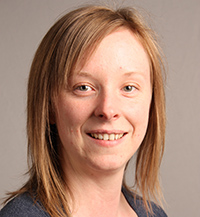
Through a lecture series focussing on diversity, students learnt about a greater range of artists, and exposed them to dance practices that they may be more familiar with or find it easier to identify with. This creates a sense of belonging, and could also improve engagement and achievement. These lectures have included artists and practices from the US, UK and Europe for some time under varying sub-themes of identity, with specific BAME examples over more recent years including Bill T Jones, Namron, Kokuma Dance Company, IRIE! Dance Theatre, MAAS Movers, and Phoenix Dance Theatre. Positive expressions such as ‘this lecture is about me’ have been voiced by students.

Through the conversations started by our involvement with the Freedom to Achieve project, the Pharmacy programme team recognised how important the sense of community and open channels of communication are for our students. We have introduced a welcome lunch for staff and students during induction week, providing the opportunity for people to meet one another in a relaxed and informal environment. Building on this success and the positive feedback, this format has been adopted by our other two undergraduate programmes in the School of Pharmacy for 2019.20. I find more students stop and say hello since its introduction and staff recognise our new students from day 1, making them quickly feel part of the school community. In addition, for the last two years the MPharm programme team have all offered open office hours every week for students during term time, making it easier for students to just pop by to ask a question or seek advice. Our staff/student communication pathway is published both in module handbooks and throughout the Hawthorn Building to remind them of all the ways they can seek support.

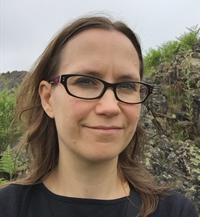
Students are given the opportunity to demonstrate their learning by reflecting on their own everyday linguistic experiences with a module that includes writing about their own ‘linguistic observations’. As the focus of this is on the students’ own experience, it is sensitive to the students’ own socio-cultural identity and history. For example, bilingual and international students have written pieces commenting on linguistic differences between the languages they speak or some of the misunderstandings they have encountered as non-native speakers of English. Students have also reflected on slang uses specific to their own dialect and social group. Students are encouraged to work in inclusive and engaged manner with their peers, with peer feedback and collaboration, as students can learn from each other’s experiences.

A cross-school DMU global trip was organised and students from courses in the Schools of Pharmacy and Nursing and Midwifery participated. This intense 9 day trip to Hong Kong included visits to the Hong Kong Museum of Medical Sciences, the Taipingshan Medical Heritage Trail, the School of Pharmacy, University of Hong Kong, the Hong Kong University School of Chinese Medicine, the Hong Kong Monetary Authority, and the Po Lin Monastery & Big Buddha with additional free time for students to explore the culture and sights. The trip was well evaluated and gave students a greater insight into what are described as “alternative” or “complementary” therapies in the West but are in more commonly used in the East, and an opportunity to hear different perspectives from other members of the multi-disciplinary teams working within the NHS and private sector in the UK.


Science should offer an opportunity to everyone, and Marvin Munzu, one of the BAME speakers at “Plan Ahead, Value Employability” (PAVE), a conference with a full set of external speakers organised by the Health and Life Sciences faculty, giving students the opportunity to talk directly to pharmaceutical and cosmetic based employers, emphasised this – he was a dynamic and inspiring speaker for all, speaking about succeeding in pharmacy. Marvin Munzu inspired over 120 students present that anyone can succeed whatever their background. Just believe, know yourself and be positive! Students and staff present all agreed that he presented exceptionally well, connected to his audience and inspired them.

As part of their second year research methods module, Level 5 psychology students complete an assessed qualitative research report using interpretative phenomenological analysis (IPA). IPA is a new approach to our students, so two workshops are dedicated to practicing IPA on an existing dataset. These workshops presented an opportunity to incorporate further inclusivity within the Psychology programme by focusing on a topic that takes into account our learners’ identities, experience and history: the Hajj Pilgrimage. Hajj is an annual pilgrimage that should be undertaken by all able Muslims at least once in their lifetime. Diaries written by pilgrims are analysed and discussed by students in the workshops, with a range of socially, culturally and globally relevant mixed media resources provided on Blackboard, and a tutor available to support students’ learning. In terms of best practice, this approach highlights the suitability and adaptability of research methods training for embedding inclusivity into programme curricula. Topics can be chosen to reflect the demographics of the cohort, and changed easily from one year to the next by using readily available data (e.g. online diaries, blogs, public datasets etc.). Therefore, research methods training is an excellent opportunity for educators to enable more students to see themselves reflected in their learning.

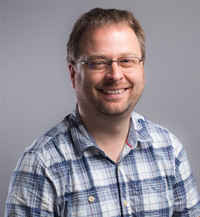
We created a series of ‘profiles’ with pictures and interviews of former DMU Education Studies students who are now in various types of professional roles, including psychotherapists, children’s social workers, personal trainers, and academic researchers. The idea was to present these profiles as examples of ‘real people’ who were once where current students are, but who have gone on to achieve in a variety of professional areas. The intention was to create role models, and encourage students by showing them ‘if they can do it, so can I’. This workshop was very well received by students who were present.

‘Pride and Prejudice in the Archives: issues with representation and access’
The aim of the session was to provide a behind-the-scenes look at how GLAM (Galleries, Libraries, Archives and Museums) professionals manage problematic collections through a short talk and handling exercise, which included materials that come with a content warning regarding their representation of race. Specifically, discussion focused on the challenges of describing and providing access to artefacts and documents with racist content, a strategy for acknowledging and reviewing legacy catalogues where descriptions are outdated and often offensive and how we can strive to make archives a space for everyone through decolonisation and ‘archival activism’. This latter phrase covers a host of activities from acquiring collections that represent the whole of society, updating catalogues, not whitewashing or erasing offensive content, reviewing our collections for ‘hidden histories’, working with community archives and many more.
The handling exercise proved to be an ‘eye-opening experience’ for some who were surprised by the more recent examples of overt racism in the archives. Discussion also focused on the scale of the work to be done and the hindering responses of discrimination denial. Not to be deterred by such challenges, we say: activism in the archives, bring it on!

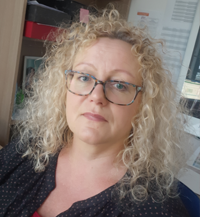
We have always aimed to create a sense of belonging in the Game Art community, which welcomes all cultures, subcultures, beliefs and genders, and the ongoing open dialogue with the diverse students enrolled on the course is aimed at ensuring the best possible experience. An example of one of our projects focuses on character design and development, using self-portrait as a method to explore their own heritage and culture, and allows students to create a character that reflects this. Work produced by artists and technologists from a wide range of countries, cultures and backgrounds is used as example in lectures and inspires students to engage in their own further research. Over the past few years there has been a considerable increase in the number of students who develop a keen interest in diverse cultures, traditions, architecture and environments, which is evident in their creative work.

As an advocate of student-centred learning and assessment I have encouraged students to apply their own ethnic and cultural perspectives to the assessment and creation of advertising and other forms of marketing communications. In understanding that brands have a responsibility to speak to inclusive audiences they can choose any campaign to assess and in answering the D&AD New Blood Awards briefs they have the opportunity to consider different audiences, both domestic and international. The module, Campaign Planning, also addresses the issues of individual learner needs by offering communication in a variety of formats and encouraging different approaches to engagement through the use of a workbook. This enables students to control their own learning in terms of time and depth of interaction, while at the same time providing individualised support outside of the classroom. Students focus on what they want or need to know and consequently are able to move at their own pace through the module and in relation to the assessments.

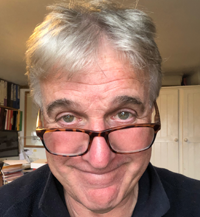
The Graphics Programmes have developed and nurtured an approach to peer learning and assessment over many years, with the emphasis on developing the students’ sense of self and an ownership of the programme(s). Opportunities for students to explore a wider range of backgrounds and cultural design practices include creating work based on diverse literary narratives, for example ‘Rage in Harlem’ by Chester Himes. Students will be able to reflect on the character and tone of the content they are illustrating/designing, allowing them to contemplate different cultural backgrounds and reflect on the observations of their work. The programme(s) aim to provide opportunities to express individuality and identity, and strengthen cultural diversity.

International students studying on Business programmes are given the opportunity to co-create study skills resources to develop their learning by attending my drop-in sessions and workshops on English language and academic writing skills. Through student feedback from these sessions I produced a referencing guide for international students which took their learning perspectives into account by using contextualised examples and keeping the design, content and language simplified and accessible. Resources created are intended to be used as supplements alongside central university materials and have been very well received by module tutors and students within the Business and Law faculty. Academic skills workshops are also embedded into some Business programmes with a large international student cohort so that students can access contextualised academic support and while these sessions are not compulsory, attendance is always at its maximum!

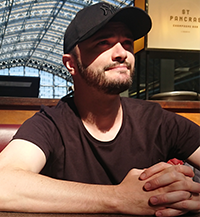
In 2018 I asked two third-year students who had written essays on postcolonial theory for my second-year international relations module whether they would be interested in leading a staff-student reading group on Akala’s book Natives: Race and Class in the Ruins of Empire. They agreed, and found a couple more volunteers, so we had four student leaders to facilitate the group. Lecturers participated, but the majority of the group were students – mostly BAME students, though white students joined too – and academic roles were effectively reversed. I acted as the student leaders’ administrator, organising room bookings and refreshments, running the mailing list and adding new members. The students provided the intellectual leadership and decision-making. They opened, led and facilitated each discussion. 15-20 regular attendees met fortnightly on a Thursday evening for two hours (though we often ran over!) to discuss a chapter from the book. In this relaxed space, controlled by students, they led us through sophisticated discussions of race and racism, as well as class, gender, sexuality and much more. In 2019 we are reading Afua Hirsch’s Brit(ish) with a new team of third-year student leaders, who attended the Akala reading group in their second year.

Among the ‘systems thinking’ concepts students encounter in the PG ‘Leading change for sustainability’ module are: ‘subjectivity’, ‘perspectivism’ and ‘social constructivism’. One way we have introduced these ideas is by reading, co-performing, and reflecting on the story of the ‘The blind men and the elephant’: an ancient tale found in Buddhist, Sufi Islam, Jainist and Hindu traditions. Pedagogically, the task draws on oral traditions, story and performance. Content-wise, it helps students grasp the inevitable limitations and partiality of all knowledge and aids student comprehension of: positionality, perspectivism, and social constructionism; the importance of active listening and, not only listening to, but listening out for alternative perspectives, alternative voices; and the inevitable partiality of any person’s – or any culture’s – claims to ‘impartiality,’ ‘objectivity’ or definitive ‘truth’. While we deploy the task on a PG module in sustainability, I have previously found this exercise just as relevant to religious studies students and undergraduate historians (for introducing post-colonial and postmodernist historical theories, for example).

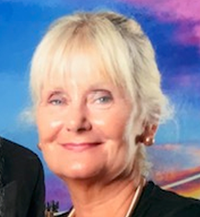
Ensuring that education is fit for purpose to engage diverse groups, means reflecting a holistic representation of diversity within teaching materials and media. Keen to develop a multi-centric representation of diversity for recruitment, induction and teaching purposes; animated scenarios, talking head signpost activities and lecture materials were developed and embedded within teaching and outreach activities. This innovative approach aligns with research which reflects that avatar based media has the power to instill avatar empathy and understanding but becomes more relevant if the observer can relate to the avatar delivering the message. Avatar role models and academic guides have an ability to inspire all students without resorting to stereotypes and other influences more typically represented in the media. Most important however is ensuring that colleagues fully understand the opportunities provided by these methods which is why dissemination is such good practice.

Our team is continuously working on creating a more diverse and accessible programme.
In order to accommodate the needs of different students #DMU Global strives to offer opportunities that vary in duration, focus and location. Programme entails a wide range of opportunities for DMU students to study, work and volunteer overseas as part of their degree. Students can choose from spending a year to a week or even few days abroad. If going abroad is not suitable, students can join one of the established and meaningful range of international experiences, that are offered right here, on campus instead. Options from taking on a challenge of studying a foreign language, obtaining Teaching English as a Foreign Language or Intercultural Awareness certificates are available.
We have also partnered with The Freedom to Achieve: Reducing BAME attainment gap project for a number of trips where students were able to explore identity and the success of black and minority ethnic communities in New York City and Silicon Valley.
Since the programme launched in 2015 students from BAME backgrounds engagement grew from 34% to 44% in 2019. Despite the positive shift we have seen throughout the years we recognise that there is always room for improvement. In attempt to further support students from underrepresented groups we have set up a special fund for students that need additional financial support. Over 20 students have benefitted from Widening Participation funding this academic year and we hope many more will in the future.

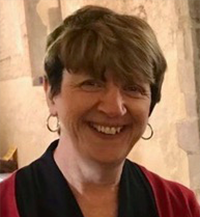
After being awarded a CAI sabbatical Fellowship award in 2020 I have now been able to develop a prototype online space created by Dr Rob Weale from CELT as a hub through which interactive online scenario-based materials have been developed for teaching, learning and assessment. Here was an opportunity to explore the potential of introducing an innovative approach to our course design, incorporating co-creation with students, academic staff, service users and researchers to develop, refine and evaluate these materials before embedding into the undergraduate midwifery curriculum as we prepare for revalidation in 2021.“Northside’ comprises an interactive map of a fictitious area within a fictitious city, called Montfort, created to reflect our own local multi-cultural, diverse city where our students live and socialise and also undertake clinical placements. Scenario-based materials are accessed via the map.
A number of residents and a large number of co-created fictionalised “stories” have been developed where students can reflect upon the lived experience of service users based on their in-practice experiences; adopt a solutions based approach to care issues, and be signposted to further independent study resources as preparatory or adjunct material.
As an adaptive, interactive multimedia educational approach which encourages independent and autonomous student learning using web-based technologies, it supports the principles of UDL. Lecturers can adapt the characters and scenarios, with residents’ stories evolving over time as in reality, with an opportunity to discuss encounters with health and social care professionals and agencies during their reproductive journey and as the course topics become more complex and refined for different educational levels.
Co creation enables ideas generation through shared knowledge and experiences which should lead to a better understanding of the service user lives and hopefully improve student experiences and student satisfaction scores.
It is hoped that by including our own student users and the service users affected by the education offered to our Midwifery students and a wider range of Faculty colleagues and researchers into the co creation of our educational materials this will give a platform for more voices to be heard, allow room for more diversity and difference and desires to be incorporated in the production of our education materials.
One finding from my work with the Freedom to Achieve: Reducing BAME attainment gap project that was repeated across subject areas and was worrying to hear was that students stated that where diversity and culture was included in their curriculum, which was often negligible, it was almost always with a negative lens and when health and social care professionals are portrayed is not always reflective of the demographics of the 21st century NHS workforce. It is hoped that these issues have been addressed in this project because of my approach to their creation. As we are all reviewing online provision of course delivery this has been an opportunity to embed anonymous recording of voices and imagery to further enhance these educational materials and reflect contemporary UK society.
You must be logged in to post a comment.